A Lifetime of Horses, Hunting & Hounds
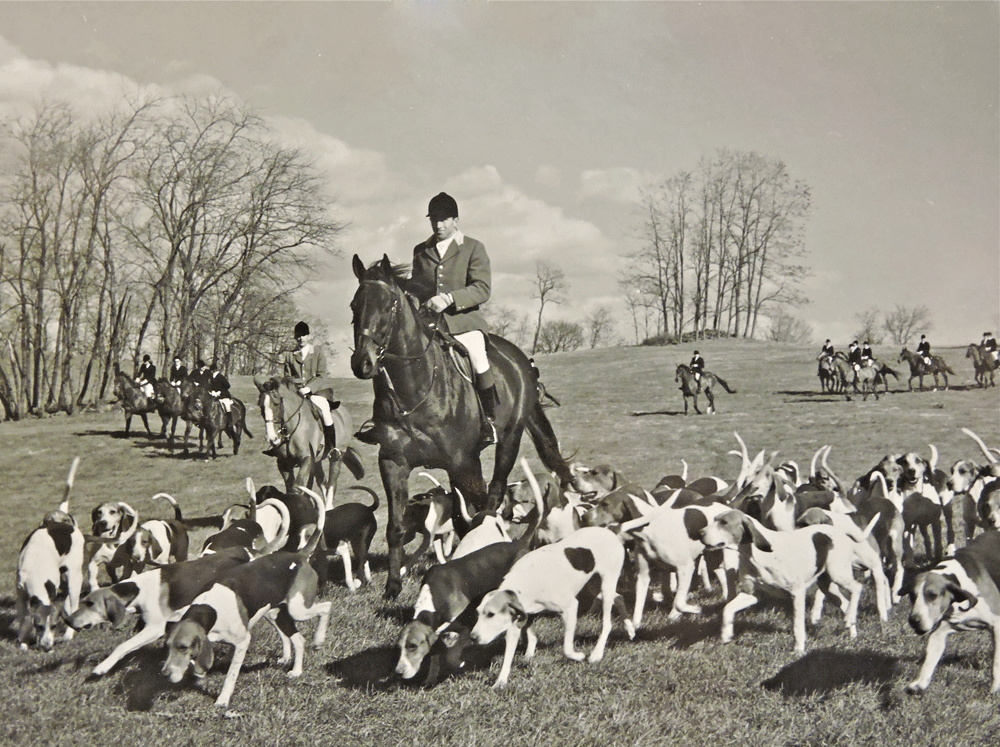
By Dulcy B. Hooper
“I’ve been around hounds and hunting, one type or another, my whole life,” said Albert Poe, legendary huntsman, horseman, houndsman and so much more.
Where does one begin in trying to capture even a modicum of this rich history and fulfill a small measure of justice to Poe’s reputation and myriad accomplishments?

Born into a family of 10 children in Hume, Virginia, Albert (who was born in 1931) and his older brother Melvin (1921-2014) are renowned in the horse world. The extended Poe family is credited as being one of the country’s most legendary families in the world of foxhunting. Albert is described by author Raymond G. Woolfe Jr., as “a quintessential huntsman, a veritable wizard with horses, hounds and people.”
Albert is, as well, a raconteur, his memory brimming with colorful anecdotes acquired over the decades. His stories meander seamlessly, shifting from foxhunting to horse training, from steeplechasing to the breeding of hounds—and then circle back again.
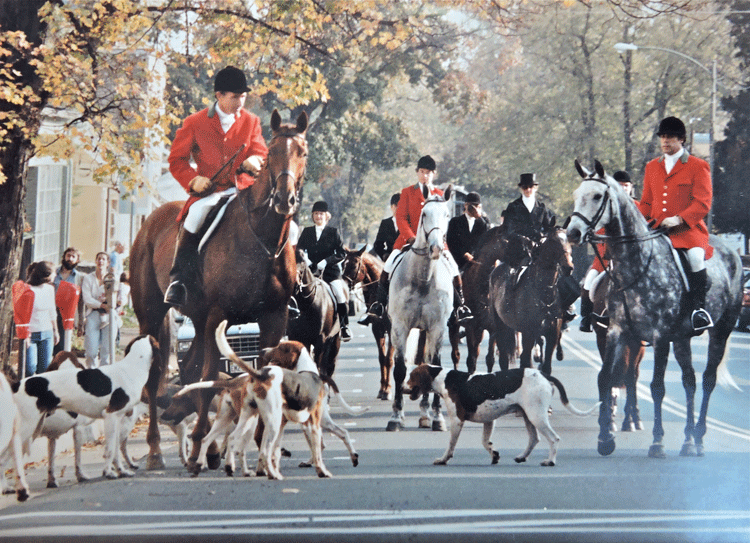
As the stories wind back and forth, Albert is patient when asked, again and again, “What year are you talking about now?” or “Which hunt was that?” There are the hunts that have been so much a part of Albert’s life and for which he is so well known—Old Dominion, Piedmont, Fairfax, Middleburg—and the iconic individuals with whom he has been involved along the way.
At the age of 15, Albert had served as his brother’s whipper-in when Melvin was huntsman to the Old Dominion Hounds. Several years later, that experience with his brother (who was by then already renowned in the world of Virginia foxhunting) led to his first huntsman position, with Piedmont Fox Hounds. Albert was hired in 1954 by joint masters Paul Mellon and Mrs. A. C. Randolph, becoming, at the age of 23, the youngest professional huntsman in the country.
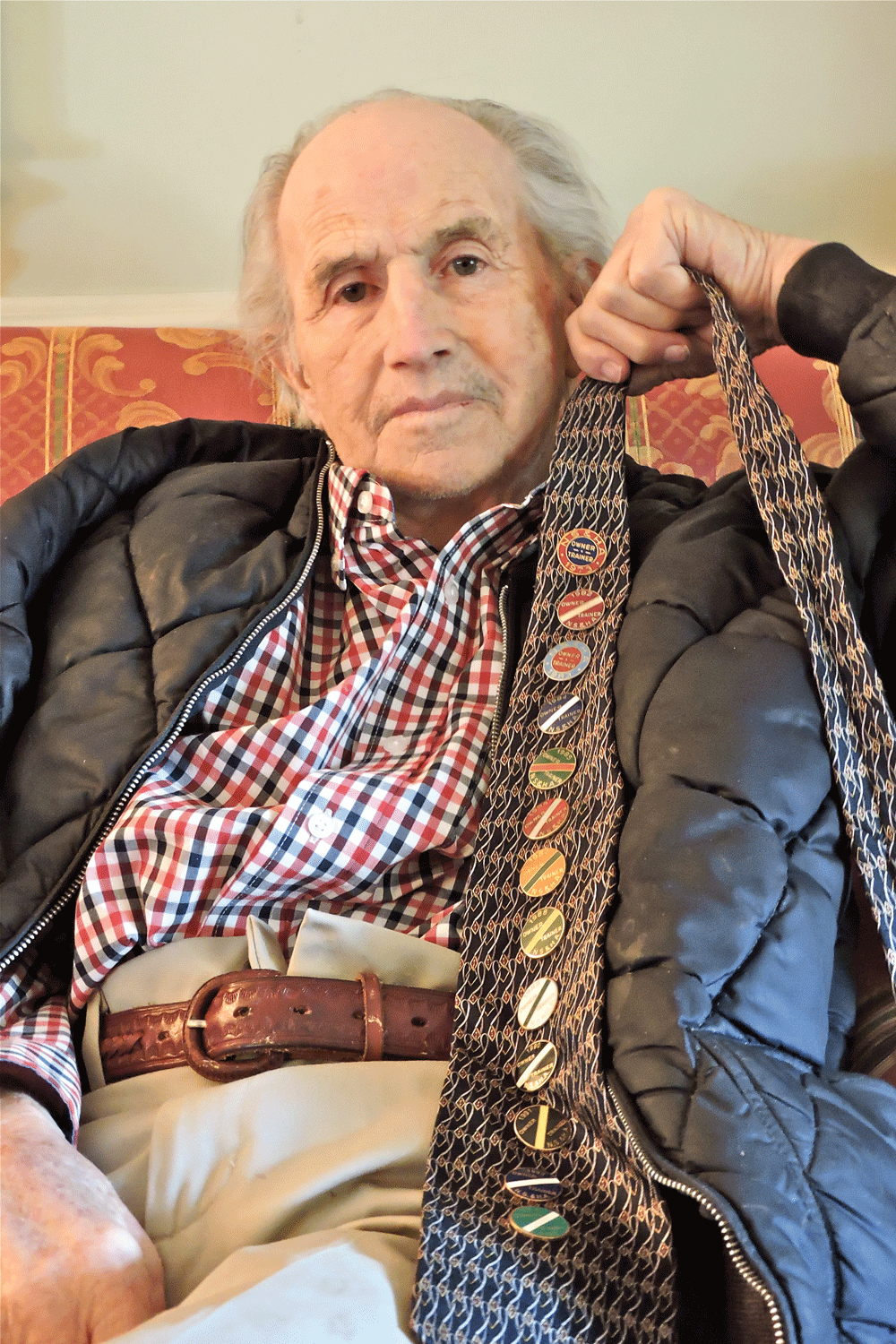
Albert remained with Piedmont for almost 20 years, from 1954 to 1972. “They wanted to ride hard,” he said. “We were hunting two days a week, and then we went up to four days a week.” When Albert’s interest began to move in the direction of horse racing, he and Mrs. Randolph had a “parting of the ways.”
Albert said he had loved racing even as a young child. In Charles Town, West Virginia, he devoted himself to training and working with his already-successful race horses. “It really made all the difference in my life,” he said, “being my own horse trainer. When I found out that I was a good enough trainer, that meant everything to me.”
Albert ran his first race in 1972, and with more than 20 years of steeplechasing, said he never experienced a single fall. “And that’s because I only raced horses that I trained myself,” he said. “I wouldn’t ride someone else’s horse because I wouldn’t have known well enough what he needed to win.”
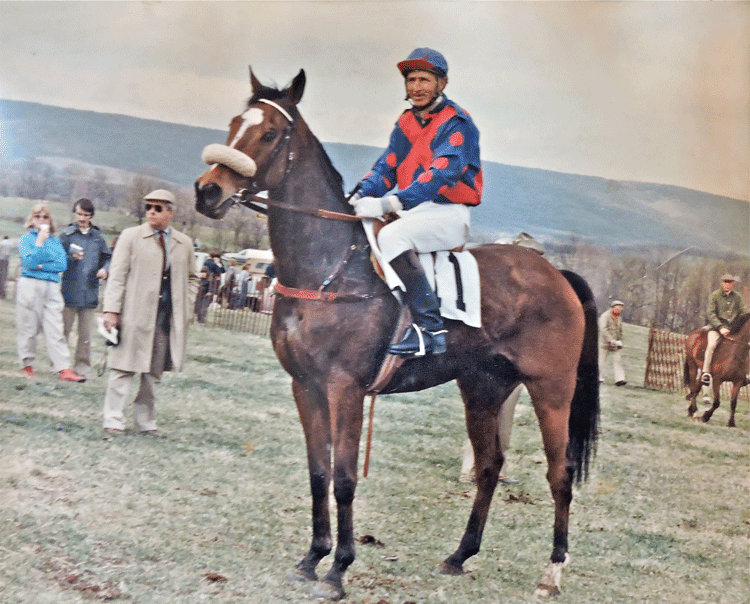
Six years later, Albert recalled, Mrs. Randolph came to visit him. “She was just by herself,” he said, “and that was very unusual. She said, ‘I made a mistake firing you, Albert. I want you to come back.’”
Albert said he would have gone back, but it was too late. His success in training race horses at Charles Town had ultimately led to all of his horses being claimed, and he was spending time as an outrider. “So when Randy Rouse offered me the opportunity to join the Fairfax Hunt, I jumped at it,” he said. “Mrs. Randolph was too late. They liked to run hard in Piedmont, but they liked to run hard at Fairfax, too.” Albert remained with Fairfax
for four years.
In 1980, Albert was asked to come on board with Middleburg Hunt. “They doubled my salary,” he recalled, “but I had a crazy bunch of hounds to deal with. You thought you had just let a bunch of pigeons out the window—they would just go flying out like birds.”
Albert began breeding his own hounds for Middleburg. “Ideally, you would line breed 40 brothers and sisters, but of course you can’t do that. So you breed cousins,” he said. “When you do that, they think alike, they move alike. American Hounds—you look them straight in the eye, and they back down. They are really nice hounds. That pack—there were no stragglers, no one left behind.”
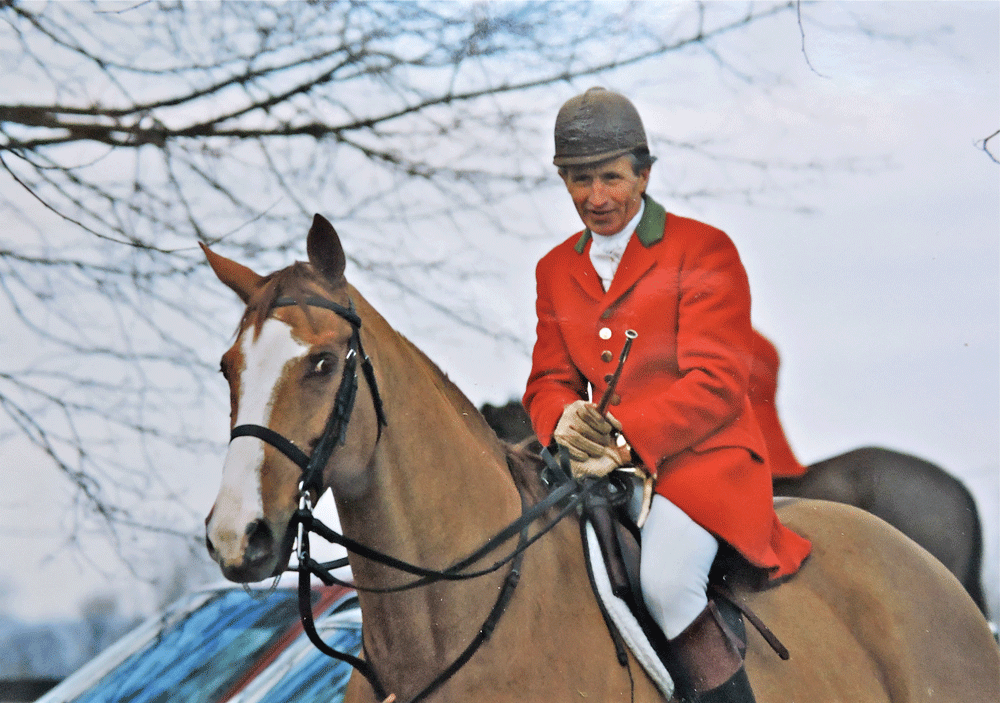
Margaret Gardner, joint master of Middleburg Hunt, 1984-1994, recalled that, “You could see them from off onto the hillside, and it was just amazing. It was like an Escher print, the way they all turned around and came back when Albert called. I will never forget it.”
Albert’s brother, Melvin, although officially retired, was hunting with Bath County Hounds when Albert decided to give him five hounds. “I had 40 hounds then,” Albert recalled. “Might have been 25 in Middleburg, some in Boyce, some in Blue Ridge. Melvin called me a couple of weeks later and said, ‘I’ve gotta have five more.’ So I asked him, ‘Aren’t they working out for you?’ And Melvin said, ‘No, your five were all out in front of the others, and they can’t keep up. I need five more.’”
In a 2002 book, “Foxhunting With Melvin Poe” by Peter Winants (1926-2009) there are numerous references to Albert and his “renowned pack of American foxhounds, the offspring of which are found in packs throughout the United States.”
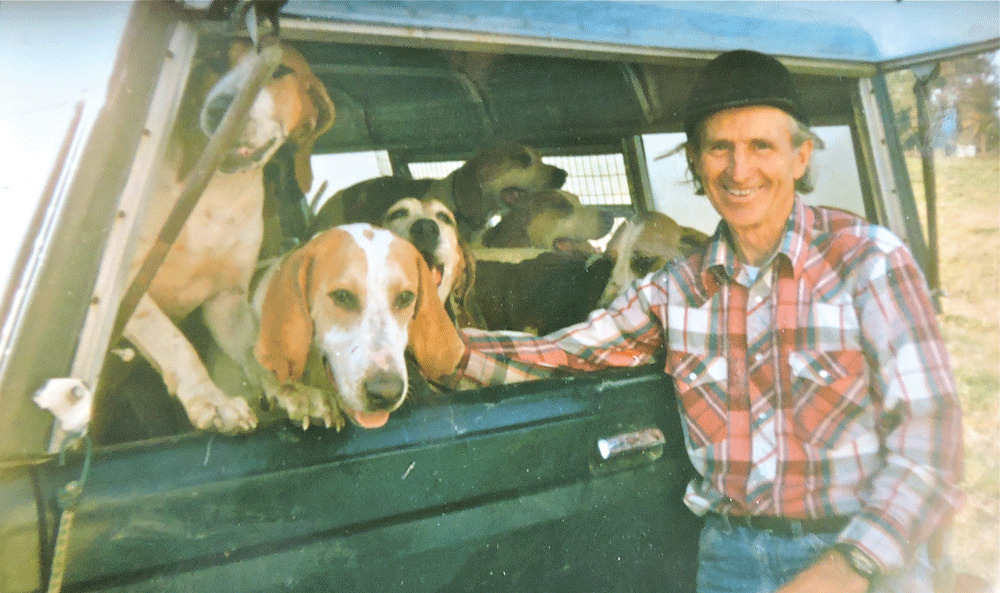
“Melvin didn’t like to talk a lot,” Albert said. “So Peter wasn’t getting too far with him for that book because Melvin just answered every question with ‘yep’ or ‘nope.’ So I got in the car with Peter, and we drove for hours and hours, and I just talked.”
In 2011, Albert and Melvin were inducted into the Huntsmen’s Room of the Museum of Hounds & Hunting North America. Albert’s induction comments were made by John J. Carle, II, Ex-MFH (Keswick Hunt, Virginia): “Albert Poe is widely considered the best breeder of American Foxhounds of the 20th century. He showed a natural gift with horses and from an early age was breaking and training ponies for neighbors. His skill in the saddle served him well over his many years in professional hunt service.”
“I could go on and on as far as how good it all was,” Albert said. And, indeed, he could. ML


